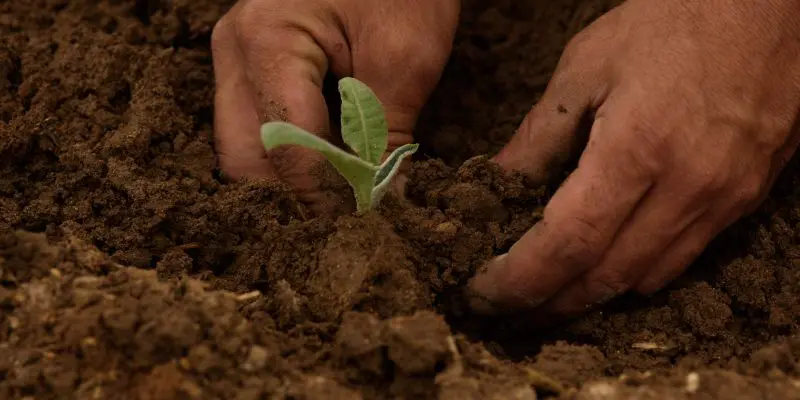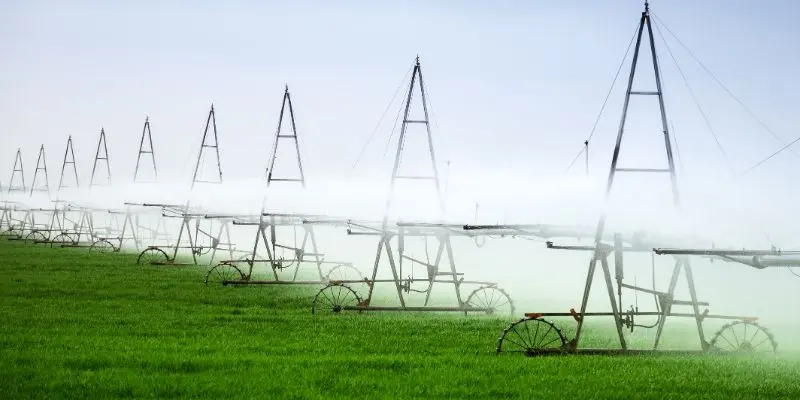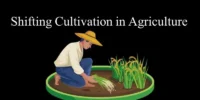The Importance of Soil Preparation for Planting
Published: 17 Mar 2025
Soil preparation is a crucial step in planting, but it can be confusing for many gardeners and farmers. Some may wonder if it’s necessary to prepare the soil at all, or how much effort needs to be put into it. Others may be unsure about the best methods or the right time to prepare the soil. Is tilling always the best approach, or should one consider alternatives like no-till farming? Soil preparation involves understanding various factors like soil texture, nutrients, and moisture levels—so getting it right can sometimes feel overwhelming
So, guys, without wasting time, let’s jump into the article to learn the Importance of Soil Preparation for Planting
1. Enhances Soil Structure and Texture
- What It Is: Soil preparation includes tilling, aerating, and breaking up compacted soil, which helps improve its overall texture and structure.
- Why It’s Important:
- Improves Root Growth: Healthy soil structure allows roots to penetrate deeply, improving access to water and nutrients.
- Prevents Compaction: Compacted soil restricts root development and water movement, making it difficult for plants to thrive.
- Increases Water Drainage: Well-prepared soil promotes better water drainage, preventing waterlogging and root rot.
2. Optimizes Soil Fertility
- What It Is: Adding organic matter, compost, or appropriate fertilizers during soil preparation helps to enhance soil fertility.
- Why It’s Important:
- Nutrient Availability: Fertile soil provides essential nutrients like nitrogen, phosphorus, and potassium, promoting strong plant growth.
- Improved Crop Yield: Fertile soil supports the growth of healthy crops, resulting in higher yields and better-quality produce.
- Sustained Soil Health: Regularly adding organic matter replenishes the soil, making it more resilient to nutrient depletion.
3. Prevents Soil Erosion
- What It Is: Soil preparation methods like contour plowing, terracing, and the use of cover crops help protect the soil from erosion by wind and water.
- Why It’s Important:
- Prevents Topsoil Loss: Erosion removes the nutrient-rich topsoil, reducing the soil’s productivity and overall fertility.
- Maintains Long-Term Productivity: Proper erosion control methods ensure that the land remains productive for years by preserving topsoil.
- Reduces Water Runoff: Techniques like mulching or cover cropping help slow down water runoff, preventing further erosion.
4. Ensures Better Seed-to-Soil Contact
- What It Is: Soil preparation creates a fine, loose seedbed that ensures better contact between seeds and soil.
- Why It’s Important:
- Improved Germination: Proper seed-to-soil contact ensures that seeds have the right environment to germinate quickly and effectively.
- Uniform Plant Growth: Better contact helps seeds absorb moisture and nutrients uniformly, leading to more even crop growth.

5. Efficient Water Management
- What It Is: Soil preparation helps to improve water retention and prevent water wastage by enhancing soil structure and aeration.
- Why It’s Important:
- Optimal Moisture Levels: Well-prepared soil can retain moisture while preventing waterlogging, ensuring crops have consistent access to water.
- Prevents Water Runoff: Properly prepared soil absorbs water more effectively, reducing runoff and water wastage.
- Drought Resilience: By improving the soil’s ability to retain water, prepared soil helps crops survive periods of drought.
6. Helps Control Weeds and Pests
- What It Is: Tilling the soil exposes weeds and pests, allowing farmers to manage them effectively before planting.
- Why It’s Important:
- Weed Reduction: Proper soil preparation helps control weeds by burying weed seeds, preventing them from germinating.
- Pest Control: Exposing soil-dwelling pests to sunlight can reduce pest populations, making crop protection easier and more sustainable.
- Reduced Chemical Use: Effective weed and pest control through soil preparation can decrease the need for herbicides and pesticides, promoting more sustainable farming practices.

7. Promotes Root Growth
- What It Is: Soil preparation, including aeration and loosening of compacted soil, encourages root growth by improving the soil’s access to oxygen.
- Why It’s Important:
- Access to Oxygen: Healthy root growth depends on adequate oxygen in the soil, which is made possible through proper aeration.
- Improved Nutrient Uptake: Well-prepared soil allows roots to access nutrients more effectively, promoting healthier plants.
- Drought Resistance: Strong, deep roots make plants more resilient to dry conditions by allowing them to reach deeper water sources.
8. Adjusts Soil pH for Optimal Growth
- What It Is: Soil testing and adjusting pH levels (using lime to raise pH or sulfur to lower it) is often part of soil preparation.
- Why It’s Important:
- Nutrient Availability: Soil pH affects the availability of nutrients to plants. A balanced pH ensures that crops can absorb essential nutrients more efficiently.
- Prevents Toxicities: If soil pH is too high or too low, it can lead to nutrient toxicities or deficiencies, which can stunt plant growth.
- Better Plant Health: Correct pH levels create an optimal environment for plants, promoting strong, healthy crops.

9. Enhances Crop Rotation Benefits
- What It Is: Soil preparation is key to successful crop rotation, a method where different crops are planted in sequence to improve soil health.
- Why It’s Important:
- Reduces Soil Depletion: Rotating crops prevents the depletion of specific nutrients in the soil by planting different crops that require varying nutrients.
- Pest and Disease Control: Crop rotation helps break the lifecycle of pests and diseases that affect specific crops, reducing the need for chemical pesticides.
- Improves Soil Fertility: Some crops, like legumes, can fix nitrogen in the soil, enhancing fertility for subsequent crops.
10. Increases Overall Yield and Crop Quality
- What It Is: All of the above practices contribute to creating the best conditions for plant growth, resulting in higher yields and better-quality crops.
- Why It’s Important:
- Healthy Plants: Well-prepared soil supports strong, healthy plants that can better resist disease, pests, and environmental stress.
- Higher Crop Yield: By improving soil conditions, farmers can expect more abundant harvests with higher-quality produce.
- Sustainable Farming: Soil preparation helps ensure that farming remains productive and sustainable over the long term, ensuring future generations can benefit from healthy soil.

Conclusion:
Soil preparation is vital for creating the right environment for planting and ensuring a successful crop yield. From improving soil structure and fertility to controlling pests and optimizing water use, soil preparation ensures that plants have everything they need to thrive. By investing in proper soil preparation, farmers can boost productivity, enhance crop quality, and ensure sustainable farming

- Be Respectful
- Stay Relevant
- Stay Positive
- True Feedback
- Encourage Discussion
- Avoid Spamming
- No Fake News
- Don't Copy-Paste
- No Personal Attacks

- Be Respectful
- Stay Relevant
- Stay Positive
- True Feedback
- Encourage Discussion
- Avoid Spamming
- No Fake News
- Don't Copy-Paste
- No Personal Attacks





